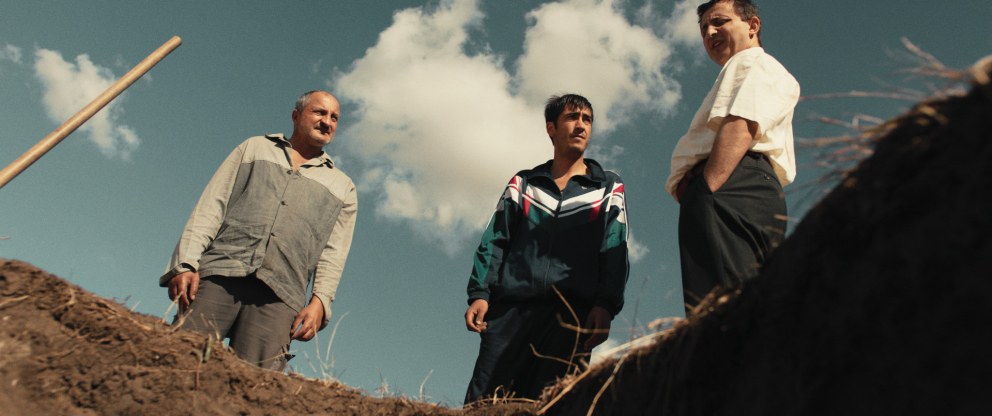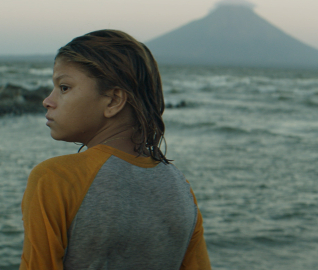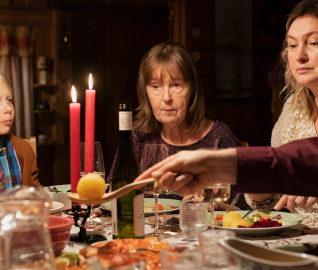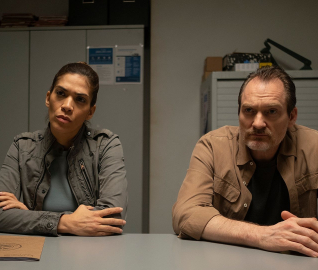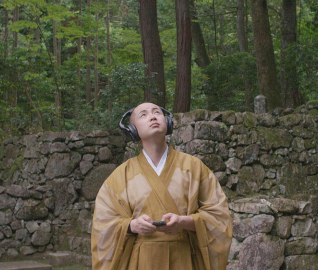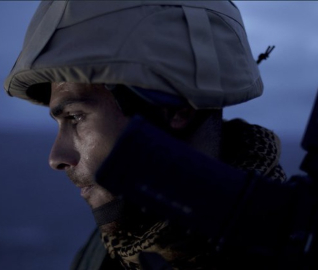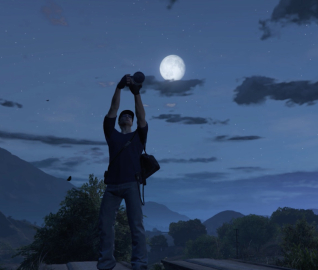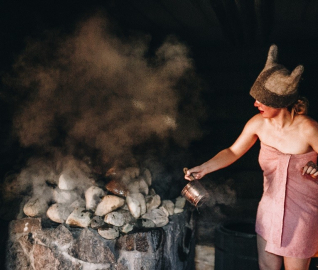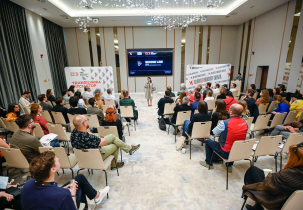22 feature films are competing in the two international competitions of the 22nd Transilvania International Film Festival (Cluj-Napoca, June 9-18). Directed by first and second-time filmmakers, 12 of them are competing for the Transilvania Trophy and the other awards of the Official Competition, and 10 for the title of Best Film of the What's Up, Doc? Competition.
Of the 12 films in the Official Competition, ten are debuts. "Although the burning social themes are inevitable (class differences, inter-ethnic conflicts, migration, drug use, prostitution, etc.), the filmmakers achieve the increasingly rare performance in today’s cinema of not abusing them, constructing, with admirable economy of means, subversive stories of great impact and narrative sophistication, whose real stakes lie elsewhere, even when the body of the whole is black comedy." (Mihai Chirilov, TIFF Artistic Director).
This is the first time the Republic of Moldova enters the Transilvania IFF competition: Carbon (dir. Ion Borș), a clever farce about the troubled years of the Transnistrian conflict in the early 1990s. The film premiered last year at San Sebastian, but the project caught the attention of the Transilvania Pitch Stop jury, which awarded it back in 2019 when it was still in development. Spain is represented in the competition by two titles that couldn't be more different: Stillness in the Storm (d. Alberto Gastesi), a jazzy love story shot in black and white and suspended between past, present and fantasy; and Upon Entry (d. Alejandro Rojas and Juan Sebastián Vasquez), which turns a simple starting point (an interrogation at customs) into a harrowing dissection of couple dynamics worthy of the most claustrophobic of thrillers.
In an edition that pays homage in extenso to Nordic cinema with a dedicated Focus section, Finland and Denmark are in competition with Family Time (dir. Tia Kuovo) and The Cake Dinasty (dir. Christian Lollike), two family portraits, one more dysfunctional than the other, where comedy gradually turns either into smouldering tragedy, or into a burlesque and politically incorrect delirium from which no one escapes unscathed. Extreme family relationships are the driving force in three other films in competition: the Brazilian Charcoal (dir. Carolina Markowicz), a black comedy telling the story of a drug dealer who is forced to stay low for a while; the Iranian Like a Fish on the Moon (dir. Dornaz Hajiha), showing two parents faced with their son's sudden muteness; and the Croatian The Uncle (dir. David Kapac and Andrija Mardesic), a notable descendant of Funny Games, and at least just as uncomfortable.
The Canadian drama Noémie dit oui (dir. Geneviève Albert) talks about a different kind of family, that of girls in institutional care, among which the rebellious protagonist of this film, abandoned by her mother and falling prey to sex tourism. The mother-daughter bond is also explored, with tenderness and a touch of magical realism, in Daughter of Rage (dir. Laura Baumeister), set against the bewildering backdrop of Nicaragua's largest garbage dump. In response, Argentinian Andrew Sala's second film, The Barbarians, is a compact thriller about a young man who goes from bad to worse when he becomes the right-hand man of his father whom he doesn't really know. Adam Sedlák returns to TIFF with a second film (after Domestique) with this year's bombshell, Banger, a veritable Trainspotting for Generation Z, shot entirely with an iPhone 12 Pro Max.
***
Inaugurated during the previous edition, when You Are Ceausescu to me won the section prize, the What's Up, Doc? Competition continues in the same playful vein, with a focus not only on classic documentaries but also on films that tread the fine line between fact and fiction. "Regardless of the path they take, which can sometimes be mystifying, breaking the rules of the genre, the ten films in What's Up, Doc? get to the truth of the matter each in its own way, whether it's about antiheroes with larger-than-life ambitions, personal quests that never really end, or real portraits of niche communities constructed with the weapons of experimental film or fiction." (Mihai Chirilov)
The Muslim protagonist of Crows Are White (d. Ahsen Nadeem) goes on a spiritual journey to a Buddhist monastery to get out of a personal impasse, while the main female character of The Land You Belong (d. Elena Rebeca Carini) returns to Romania for the first time after being adopted by an Italian couple in the 1990s, in search of her biological family and her own identity. Another Romanian coproduction, the provocative hybrid Anhell69 (d. Theo Montoya) combines the negative memories and elegiac nostalgia of a young Colombian filmmaker raised in the conservative and violent labyrinth of Medellin.
Awarded at Transilvania Shorts in 2017, Slovak Denis Dobrovoda returns to Romania with a genuine documentary, The Cathedral (Grand Prix in Krakow), the story of a grandiose genius who, for 60 years, built a giant cathedral out of recycled material and rubbish, by himself, with no knowledge of architecture. At the other end of the spectrum, non-conformist artist Giovanni Bucchieri, a former dancer with the Royal Swedish Ballet, packs a seductive autobiographical archival documentary about a failed love affair into a subversive fiction about love found in 100 Seasons.
Fresh perspectives on masculinity and femininity can be found in Dogwatch (d. Gregoris Rentis) and Smoke Sauna Sisterhood (d. Anna Hints). The former is a three-part open-air portrait of mercenaries hired to protect ships from modern pirates, while the latter brings out, in the chiaroscuro of a sauna, the deepest traumas and secrets of a group of women in an introspective and liberating therapy.
Three other films about niche communities round out the What's Up, Doc? competition - Like an Island (dir. Tizian Büchi, Grand Prix at Visions du Réel), Knit's Island (dir. Ekiem Barbier, Guilhem Causse and Quentin L'Helgouac'h) and The Outliers (dir. Raphaël Mathié) - and in all three, elements of fiction play a special role: from the magical realism that pace life in a quiet Lausanne neighbourhood, to the muckraking vision of two immigrant guards, to the avatars of film directors who spend thousands of hours in the virtual space of a survival-type video game to win the trust of its users, and, last but not least, to the stylised mise en scène of a forgotten Hamlet in the French Alps, where the few inhabitants seem unaffected by the pace and hardships of the modern world.
Tickets and cards for the 22nd edition of TIFF are on sale online - https://tiff.eventbook.ro/
***
Transilvania International Film Festival is organized by the Association for the Promotion of Romanian Cinema and the Association Transilvania Film Festival.



